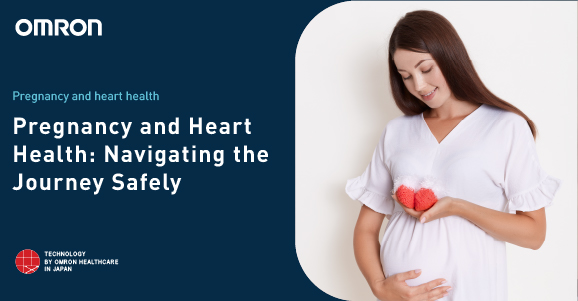Pregnancy and Heart Health: Navigating the Journey Safely
June 6, 2024 2024-08-22 16:36Pregnancy and Heart Health: Navigating the Journey Safely

Pregnancy and Heart Health: Navigating the Journey Safely
Pregnancy is a transformative period in a woman’s life, marked by profound physical, emotional, and psychological changes. While the focus often lies on prenatal care and the baby’s development, it’s crucial to also consider the mother’s heart health. Pregnancy imposes significant demands on the cardiovascular system, and understanding how to navigate these changes safely can ensure a healthy pregnancy for both mother and baby.
The Cardiovascular Changes During Pregnancy
Several circulatory changes occur during pregnancy to support the developing fetus. Although these changes are required, they may potentially put more pressure on the heart:
- Increased Blood Volume: To provide the fetus enough oxygen and nutrition, the blood volume rises by 30 to 50%. The heart must work harder to pump more blood throughout the body due to this increase.
- Elevated Heart Rate: The heart rate increases, usually by 10–20 beats per minute, to account for the extra amount of blood. Periodically, this elevated pace may cause palpitations or a racing sensation in the heart.
- Reduced Blood Pressure: Hormonal changes that relax blood vessel walls cause blood pressure to drop during the early stages of pregnancy. However, as a pregnancy progresses, blood pressure may increase.
- Increased Cardiac Output: Cardiac output, or the volume of blood the heart pumps out each minute, rises by 30 to 50%. Maintaining enough blood supply to the mother and the fetus depends on this.
Common Heart-Related Issues During Pregnancy
While many women experience healthy pregnancies, some may encounter heart-related issues that require careful monitoring and management:
Gestational hypertension: If left unchecked, high blood pressure that appears after 20 weeks of pregnancy might cause problems. To stop it from progressing to pre-eclampsia, it must be regularly monitored.
Preeclampsia: A dangerous illness marked by elevated blood pressure and indications of damage to an additional organ system, usually the kidneys. Severe headaches, altered eyesight, and upper abdominal discomfort are some of the symptoms. If left untreated, pre-eclampsia can cause major difficulties for both the mother and the child.
Peripartum Cardiomyopathy: An uncommon kind of heart failure known as peripartum cardiomyopathy can develop in the last month of pregnancy or in the five months following birth. The symptoms consist of exhaustion, edema, and dyspnea. Recovery depends on early diagnosis and treatment.
Arrhythmias: During pregnancy, irregular heartbeats may happen more frequently. Even while most arrhythmias are benign, some might need to be treated, particularly if they cause symptoms like fainting or dizziness.
Managing Heart Health During Pregnancy
Maintaining heart health during pregnancy involves a combination of lifestyle choices, medical care, and regular monitoring:
- Frequent Prenatal Check-Ups: Monitoring the health of both the mother and the fetus requires regular prenatal checkups. Healthcare professionals can identify early indicators of possible cardiac problems and offer the necessary treatments.
- Balanced Diet: Consuming a diet high in nutrients promotes general health and can assist in controlling blood pressure, blood sugar, and weight growth. It is advantageous to include a range of fruits, vegetables, whole grains, lean proteins, and healthy fats.
- Physical Activity: Walking, swimming, or prenatal yoga are examples of moderate exercise that help strengthen the heart, lower stress levels, and promote general wellbeing. It’s crucial to speak with a healthcare professional before beginning any fitness regimen.
- Stress management: Chronic stress can have a detrimental effect on heart health, and pregnancy can be a difficult period. Stress management methods include deep breathing, meditation, and prenatal massages.
- Steer Clear of Hazardous Substances: It’s important to abstain from alcohol, tobacco, and illegal substances since they can negatively impact the heart health of both the mother and the fetus. Caffeine intake should be kept to a minimum.
- Monitoring Symptoms: For early intervention, it’s critical to be alert for any odd symptoms, such as significant swelling, abrupt weight gain, chest discomfort, or difficulty breathing, and to report them to a healthcare specialist right away.
Special Considerations for Women with Pre-Existing Heart Conditions
Pregnant women with pre-existing cardiac problems should see their obstetrician and cardiologist for a comprehensive prenatal evaluation. This makes it possible to do a thorough risk assessment and create a care plan that covers every aspect of managing their disease throughout pregnancy. To protect the health of both the mother and the fetus, medication adjustments and further monitoring may be required.
Conclusion
Being pregnant is an amazing experience that calls for close monitoring of heart health. Women may safely traverse this phase by being aware of the cardiovascular changes that occur, identifying possible dangers, and adopting healthy lifestyle behaviors. A healthy pregnancy and a good result for mother and child can be ensured by routine medical care and early management of any heart-related disorders. Setting heart health as a top priority during pregnancy not only benefits the mother immediately but also lays the groundwork for long-term cardiovascular health.






